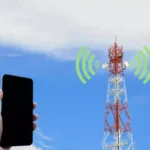
Emergencies are unpredictable. Whether it’s a natural disaster, a medical crisis, or a sudden accident, staying connected during these moments is crucial. Maintaining communication can save lives, reduce panic, and help coordinate timely assistance. Here’s why it matters and how you can ensure you stay in touch when every second counts.
Why Communication is Critical in Emergencies
In any emergency, information is power. Clear communication helps:
-
Alert emergency services: Quick, accurate calls can get help to you faster.
-
Coordinate with family and friends: Knowing everyone’s status reduces worry and helps organize reunions.
-
Share vital information: Conditions, needs, or dangers can be communicated to responders or loved ones.
-
Avoid misinformation: Reliable updates prevent rumors and confusion.
Tips to Maintain Communication
1. Have Multiple Contact Methods
Relying on just one form of communication can backfire. Use phones, messaging apps, email, and even radios. If cell networks fail, devices like satellite phones or walkie-talkies might be lifesavers.
2. Keep Devices Charged
Always have your phone fully charged and consider carrying a portable power bank. During extended emergencies, power outages can last days, so backup charging options are essential.
3. Establish a Family Communication Plan
Designate an out-of-town contact everyone can check in with. In widespread disasters, local lines might be jammed, but long-distance calls might get through.
4. Use Text Messages When Possible
Texting requires less bandwidth than calls and often goes through when networks are congested. Encourage your circle to use SMS or messaging apps in emergencies.
5. Stay Updated on Emergency Broadcasts
Many areas have emergency alert systems that send warnings via SMS or radio. Keep a battery-powered radio handy to receive updates if mobile networks go down.
6. Share Your Location
Most smartphones allow users to share their location via maps or messaging apps. Sharing your exact location with trusted contacts or emergency responders can expedite rescue efforts.
7. Practice Communication Drills
Regularly rehearse your emergency plan and communication methods with family or coworkers. Being familiar with the plan reduces stress and ensures everyone knows what to do.
The Human Connection Matters
In emergencies, staying in touch isn’t just about logistics—it’s about emotional support. Hearing a familiar voice or sending a quick message can calm fears and build resilience. It reminds us we’re not alone, even in the toughest times.




